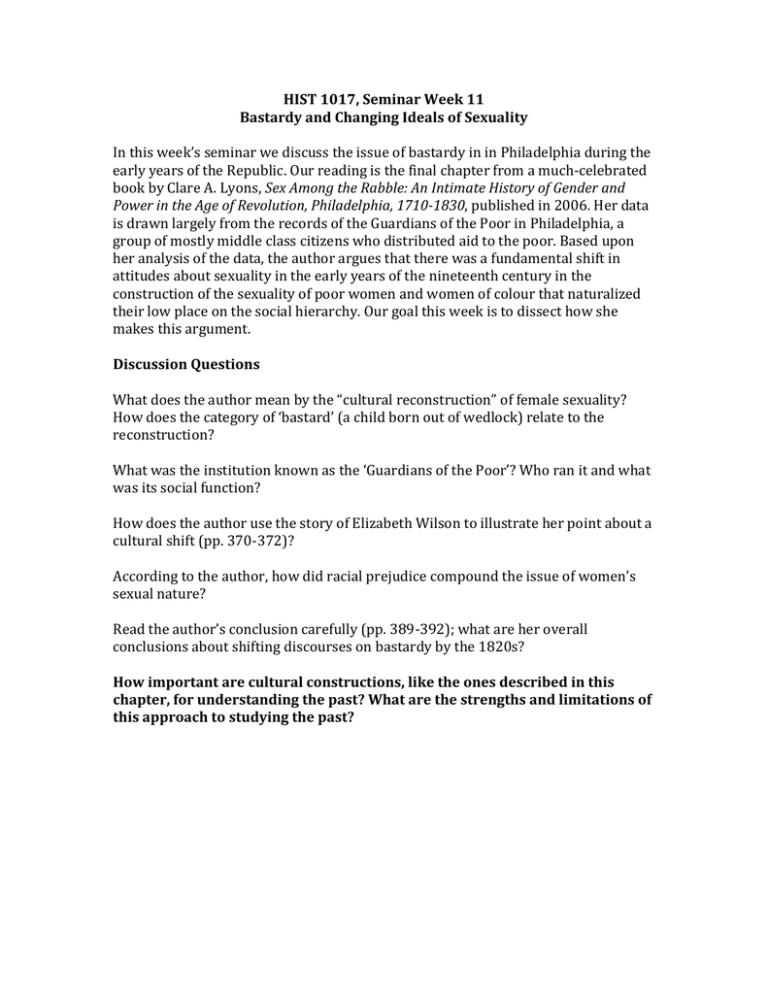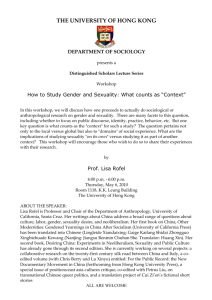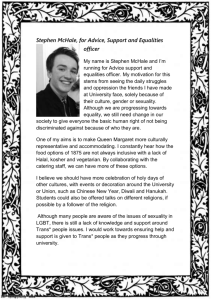
HIST 1017, Seminar Week 11
Bastardy and Changing Ideals of Sexuality
In this week’s seminar we discuss the issue of bastardy in in Philadelphia during the
early years of the Republic. Our reading is the final chapter from a much-celebrated
book by Clare A. Lyons, Sex Among the Rabble: An Intimate History of Gender and
Power in the Age of Revolution, Philadelphia, 1710-1830, published in 2006. Her data
is drawn largely from the records of the Guardians of the Poor in Philadelphia, a
group of mostly middle class citizens who distributed aid to the poor. Based upon
her analysis of the data, the author argues that there was a fundamental shift in
attitudes about sexuality in the early years of the nineteenth century in the
construction of the sexuality of poor women and women of colour that naturalized
their low place on the social hierarchy. Our goal this week is to dissect how she
makes this argument.
Discussion Questions
What does the author mean by the “cultural reconstruction” of female sexuality?
How does the category of ‘bastard’ (a child born out of wedlock) relate to the
reconstruction?
What was the institution known as the ‘Guardians of the Poor’? Who ran it and what
was its social function?
How does the author use the story of Elizabeth Wilson to illustrate her point about a
cultural shift (pp. 370-372)?
According to the author, how did racial prejudice compound the issue of women’s
sexual nature?
Read the author’s conclusion carefully (pp. 389-392); what are her overall
conclusions about shifting discourses on bastardy by the 1820s?
How important are cultural constructions, like the ones described in this
chapter, for understanding the past? What are the strengths and limitations of
this approach to studying the past?








